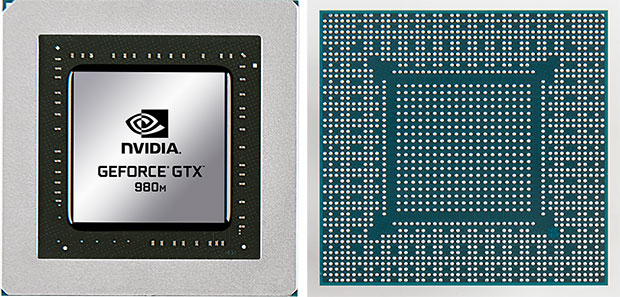NVIDIA Bows To Vocal Minority, Will Reactivate Mobile GPU Overclocking In March Driver Update
NVIDIA pulled the rug out from under overclockers through a recent driver update that disabled the ability to goose its GeForce GTX 900M Series mobile GPUs past their stock clocks, creating a whirlwind of criticism in the process. Having heard the collective outcries of overclockers, and perhaps looking to avoid a class action lawsuit, NVIDIA has decided to reinstate the ability to OC through an upcoming driver.
Why a lawsuit? Well, we live in sue-happy times, but that's a topic for another day. The real reason, however, is because NVIDIA's hardware partners marketed and sold high-end gaming laptops with overclocking listed as a selling point. For example, ASUS touts its Turbomaster GPU technology on laptops with Maxwell inside, saying that "GPU Tweak supports 5 percent overclocking while an upgraded cooling system ensures your G Series stays cool and quiet." Other OEM partners make similar claims.

According to NVIDIA, however, its notebook GPUs were never designed to support overclocking and it was only because of a "bug introduced into our drivers" that the ability was there in the first place. NVIDIA removed the so-called bug with its GeForce R347 (347.29) driver, but will reinstate the functionality with a driver update next month.
"As you know, we are constantly tuning and optimizing the performance of your GeForce PC. We obsess over every possible optimization so that you can enjoy a perfectly stable machine that balances game, thermal, power, and acoustic performance. Still, many of you enjoy pushing the system even further with overclocking," an NVIDIA customer care representative stated on the GPU maker's forum.
"Our recent driver update disabled overclocking on some GTX notebooks. We heard from many of you that you would like this feature enabled again. So, we will again be enabling overclocking in our upcoming driver release next month for those affected notebooks. If you are eager to regain this capability right away, you can also revert back to 344.75," the rep continued.
This is a definite win for the overclocking community, though not everyone thinks the company should bend. Those who agreed with NVIDIA's initial stance are quick to point out that thermal management in laptops can be a tricky affair, and by overclocking, it increases the risk of damage and preventable warranty claims.
Why a lawsuit? Well, we live in sue-happy times, but that's a topic for another day. The real reason, however, is because NVIDIA's hardware partners marketed and sold high-end gaming laptops with overclocking listed as a selling point. For example, ASUS touts its Turbomaster GPU technology on laptops with Maxwell inside, saying that "GPU Tweak supports 5 percent overclocking while an upgraded cooling system ensures your G Series stays cool and quiet." Other OEM partners make similar claims.

According to NVIDIA, however, its notebook GPUs were never designed to support overclocking and it was only because of a "bug introduced into our drivers" that the ability was there in the first place. NVIDIA removed the so-called bug with its GeForce R347 (347.29) driver, but will reinstate the functionality with a driver update next month.
"As you know, we are constantly tuning and optimizing the performance of your GeForce PC. We obsess over every possible optimization so that you can enjoy a perfectly stable machine that balances game, thermal, power, and acoustic performance. Still, many of you enjoy pushing the system even further with overclocking," an NVIDIA customer care representative stated on the GPU maker's forum.
"Our recent driver update disabled overclocking on some GTX notebooks. We heard from many of you that you would like this feature enabled again. So, we will again be enabling overclocking in our upcoming driver release next month for those affected notebooks. If you are eager to regain this capability right away, you can also revert back to 344.75," the rep continued.
This is a definite win for the overclocking community, though not everyone thinks the company should bend. Those who agreed with NVIDIA's initial stance are quick to point out that thermal management in laptops can be a tricky affair, and by overclocking, it increases the risk of damage and preventable warranty claims.

